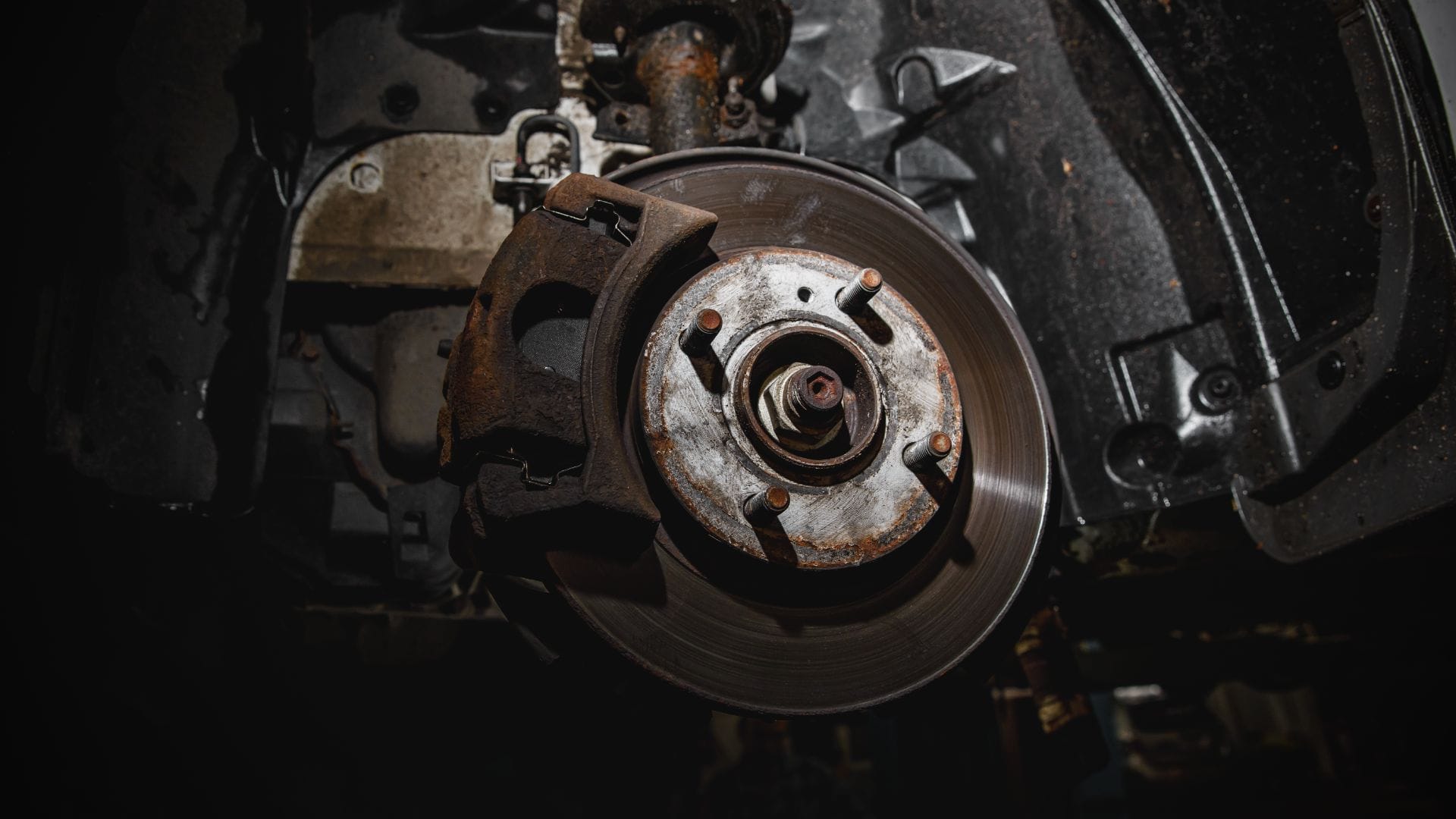Hear that annoying squeak when you gently brake? Your car might be trying to tell you something. While it’s not always cause for panic, it’s a definite sign that your brakes need attention. This guide walks you through why your brakes might squeak when coming to a slow stop, and, more importantly, how to silence the screech. We’ll cover everything from easy DIY fixes to when it’s time to call in the pros. Let’s get those brakes quiet again!
Decoding the Low-Speed Screech
That high-pitched squeal when easing to a stop? It’s a common problem. The good news is that several simple checks can usually pinpoint the cause of your brakes squeaking when stopping slowly. Let’s dive in and explore the likely culprits behind the racket.
Unraveling the Mystery of Low-Speed Squeaks
Why does it seem like brakes only squeak at low speeds? The answer lies in vibration. A squeak is often the result of high-frequency vibrations between the brake pads and rotors – imagine a tiny violin bow dragging across a metal surface. At higher speeds, this vibration might still be present, but the frequency changes, rendering it less audible to human ears. Ongoing research continually explores the complex relationship between friction, vibration, and sound in braking systems. So, when we ask, “Why do my brakes squeak when I slowly stop?”, a more accurate question might be, “Why do I hear my brakes squeak when I slowly stop?”
Usual Suspects: Identifying the Source of the Noise
Several factors trigger these vibrations, and the resulting noise. Let’s break down the most common culprits:
- Morning Dew and Rusty Rotors: Moisture settling overnight can cause a thin film of surface rust on your brake rotors. This rust can create a squeak that disappears as you drive and the brakes warm up, much like the creak of a rusty swing set fading with use.
- Brake Dust Build-Up: Brake dust, fine particles created during normal brake pad wear, can collect on rotors and pads. This dust increases friction, likely contributing to those irritating squeals. The composition of brake pads influences dust production and noise. Research continues to explore materials and designs that minimize both.
- Thinning Brake Pads: As brake pads wear down, a metal wear indicator starts scraping against the rotor, emitting a high-pitched squeal—a clear sign it’s time for new pads. This is your car’s way of saying, “Attention please! New brake pads needed!”
- Imperfect Rotors: Rotors can develop grooves or warps, creating uneven contact with the brake pads. This unevenness generates noise and reduces braking efficiency. Think of a bumpy road causing a jarring ride – similarly, uneven rotors create a less-than-smooth braking experience.
- Glazed Rotors: Excessive heat hardens rotors, creating a “glaze” that reduces friction. Counterintuitively, this can increase squeaking. Less grip can mean more slippage and noise.
- Sticky Calipers: The caliper, which houses the brake pads, must move freely. A sticky caliper causes uneven pad wear and squeaks. This emphasizes the importance of harmonious brake system function for quiet and efficient braking.
- Insufficient Lubrication: Certain brake system points require lubrication to prevent metal-on-metal contact and noise. Without proper lubrication, these components “protest” with squeaks.
New Brakes, Same Old Song? Addressing Break-In Squeals
Ironically, new brakes can sometimes squeak as they adjust. This “break-in” period is usually temporary. However, persistent squeaking might suggest improper installation, warranting a professional inspection. It’s like breaking in a new pair of shoes – a little initial discomfort is normal, but persistent rubbing suggests a problem.
Troubleshooting: Pinpointing the Problem
Listen carefully when your brakes complain. Note when the squeak occurs. Is it consistent, or only under certain conditions like light braking or damp weather? Keeping a record of these instances can be helpful.
Step 1: Inspect Your Brake Pads: Are they thin? Thin pads are a likely culprit and require replacement.
Step 2: Examine Your Rotors: Look for signs of rust, grooves, or warping. Sometimes, cleaning with brake cleaner resolves the issue.
Step 3: Test the Brakes in Different Conditions: Does the squeak change in different weather, speeds, or after the car has been parked? This can provide valuable diagnostic clues.
When to Seek Professional Help
While some brake issues are easy DIY fixes, others require a professional. Persistent squeaking, grinding, vibration, or a soft brake pedal all suggest professional advice is needed. Brakes are crucial for safety – never gamble with them.
| Symptom | Possible Cause | Recommended Action |
|---|---|---|
| Light Squeaking | Morning rust, brake dust | Monitor, clean brakes |
| Persistent Squeaking | Worn pads, glazed rotor | Replace pads, resurface or replace rotors |
| Grinding Noise | Metal-on-metal contact | Immediate professional inspection |
| Vibration | Warped rotors, loose caliper | Professional inspection |
| Soft Pedal | Brake fluid leak, air in lines | Immediate professional inspection |
This table offers a quick guide, but diagnosing brake issues can be complex. Ongoing research in brake diagnostics means available information may evolve. Consult a professional if you’re unsure about anything brake-related.
Why Do My Brakes Squeak But Pads Are Good?
New brake pads, yet the squeaking persists? Frustrating, right? Don’t worry, you’re not alone. This isn’t always a major issue, but it does require some detective work. Let’s explore what might be causing the noise, even with fresh pads.
Beyond the Pads: Other Potential Culprits
Sometimes the squeak originates not from the pads, but other parts of the system. Like a squeaky door hinge, the problem often lies elsewhere.
Dirt, Dust, and Dryness: The Usual Suspects
Dirt, debris, and lack of lubrication are common causes of brake squeal, even with new pads. Road grime, dust, and tiny pebbles can lodge in the brake system, creating friction and noise. A good cleaning often solves this.
Lubrication is also key. Caliper slides and pins need grease to move smoothly. Over time, this grease dries out, causing friction and squeaking. Proper lubrication enables effortless gliding and reduces noise.
The Rotor Story: Glaze and Grooves
Rotors can develop a smooth “glaze” that reduces friction and increases squeaking. Similarly, warped or grooved rotors create uneven contact with brake pads, generating noise.
Metallic Mayhem: Pad Material Matters
New, high-metallic brake pads can be prone to squeaking during the “break-in” period. The abrasive nature of the material itself contributes to the sound.
Troubleshooting: A Hands-On Approach
Here’s a step-by-step guide to locate the squeak source:
Step 1: Visual Inspection: Check calipers, rotors, and pads for wear, damage, or dirt.
Step 2: Cleaning Time: Use brake cleaner and a stiff brush to remove debris from brake components.
Step 3: Lubrication is Key: Apply brake grease to caliper slides, pins, and other contact points (consult your car’s manual).
Step 4: Rotor Check-up: Examine rotors for glaze or grooves. Resurfacing or replacement might be necessary.
Step 5: Pad Pondering: If the squeak persists and you suspect high-metallic pads, consider switching to ceramic or organic pads, which are generally quieter.
When to Call a Pro
While many solutions are DIY-friendly, sometimes professional help is best. Persistent squeaking, grinding, or changes in brake feel require a mechanic’s expertise. Safety first!
How do I Stop My Brakes From Squeaking at Low Speeds?
That high-pitched squeal at low speeds is annoying but usually not a sign of immediate danger. Let’s explore why your brakes might be noisy and how to quiet them.
Decoding the Screech: Vibrations and Their Causes
The squeak is often a result of vibrations amplified by factors like dust, moisture, or a glaze on the brake pads. Let’s explore these causes and their solutions.
Beyond Worn Pads: Other Noise Contributors
Worn pads are a suspect, but often not the sole culprit at low speeds. Sometimes, cleaning is the answer. Brake dust and road grime between pads and rotors create friction and noise. Moisture can also cause temporary squeaking due to surface rust that gets scraped away during initial stops. Even new brakes can be noisy during their “break-in” period.
Troubleshooting: A Step-by-Step Guide
Step 1: Visual Inspection: Check for thin brake pads or deep grooves/warps on rotors. These might require replacement. Don’t forget your cottage cheese ceilings asbestos! Another area you should check!
Step 2: Cleaning: If pads and rotors look okay, clean them with brake cleaner to remove dust, grime, and surface rust.
Step 3: Lubrication: Apply brake lubricant to the back of the pads, shims, and caliper contact points. Never apply lubricant to the friction surfaces of pads or rotors!
New Brakes Still Squeaking? The Break-In Period
New brakes might squeak as the pad material conforms to the rotors. Controlled stops and accelerations can expedite the break-in process.
When to Seek Professional Help
If squeaking persists despite cleaning and lubrication, professional help is likely required. This could indicate warped rotors, a sticking caliper, or other issues needing specialized attention.
Preventing Future Squeaks: Proactive Care
Regular inspections and cleaning prevent many squeaking issues. Consult your owner’s manual for recommended brake inspection intervals.
| Potential Cause | Likely Symptoms | Possible Solutions |
|---|---|---|
| Brake dust/Road grime | Squeaking, especially at low speeds | Clean brakes with brake cleaner |
| Moisture/Surface rust | Temporary squeaking, often after periods of inactivity | Clean brakes, allow to dry, consider regular cleaning |
| Glazed brake pads | Consistent squeaking, reduced braking power | Resurface or replace brake pads |
| Worn brake pads | Squeaking, grinding, reduced braking power | Replace brake pads |
| Warped rotors | Squeaking, vibration in brake pedal, pulsating brakes | Resurface or replace rotors |
| Sticking caliper | Squeaking, pulling to one side, uneven brake wear | Repair or replace caliper |
This guide isn’t exhaustive. Consult a qualified mechanic if you’re unsure about anything or if the problem persists. Your safety is paramount. You can experience the clarity of a bygone era and witness history unfold, crisply shown as a tv broadcast.
Uncover the potential dangers lurking above you and learn how to identify cottage cheese ceilings asbestos. Experience the clarity of a bygone era and witness history unfold, crisply shown as a tv broadcast.
- Discover Long Black Pepper: Flavor & Health Benefits - April 25, 2025
- Shocking Twists: The Grownup Review: Unreliable Narration - April 25, 2025
- A Quiet Place Book vs Movie: A Deep Dive - April 25, 2025
















